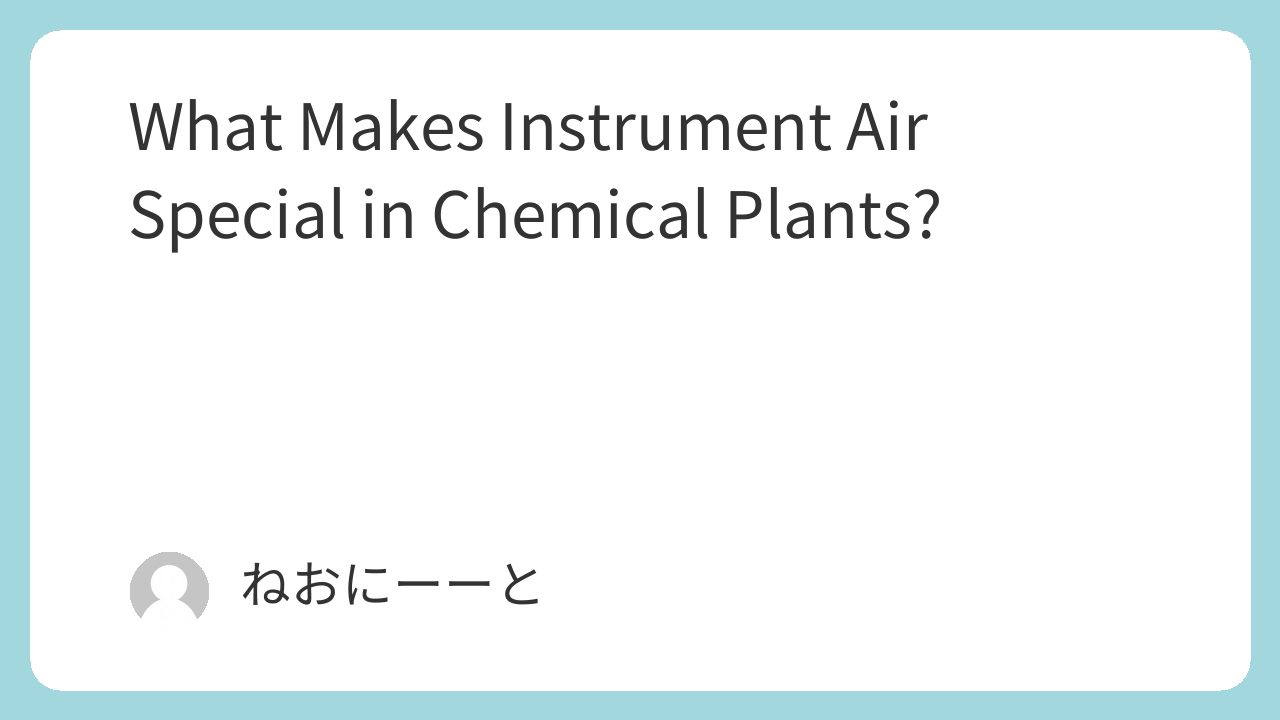In chemical plants, many machines run on air—but not just any air. “Instrument air” is a clean, dry, and safe type of air used to control valves and equipment. But why do we need a special kind of air? And what happens if it’s not clean or dry enough? This beginner-friendly guide will explain everything in simple terms.
5 Essential Utilities in Chemical Plants (for Beginners)
How Industrial Water Is Used in Chemical Plants: A Practical, Application-Based Overview
Steam Is More Dangerous Than You Think|Risks of Burns, Static Electricity, Corrosion, Blockage, and Equipment Damage
🛠 What Is Instrument Air?
Instrument air is compressed air that is filtered and dried. It is not the same as the air you breathe or use in tools. It must be very clean to protect sensitive instruments and keep the plant running safely.
💡 Why Instrument Air Must Be Dry
Moisture can damage valves and instruments. If water gets into the system, it may cause corrosion, freezing, or malfunction. That’s why instrument air is usually dried using dryers before use.
🧪 Why It Must Be Oil-Free
Some air compressors use oil. If oil gets into the instrument air, it can damage sensors and valves. Chemical reactions with oil can also be dangerous in certain processes. That’s why most systems use oil-free compressors or special filters.
🚫 Not for Breathing
Instrument air is not meant for humans to breathe. It may contain leftover particles or gases that are unsafe for people. Plants usually have a separate system for breathable air.
🔄 Not the Same as Plant Air
“Plant air” is regular compressed air used for general purposes, like powering tools. It doesn’t need to be as clean or dry as instrument air. Mixing them can cause equipment failures or safety issues.
✅ Conclusion
Instrument air might seem like just air, but in chemical plants, it plays a big role in keeping everything safe and working well. It must be clean, dry, and oil-free—because the smallest contaminant can lead to big problems.
About the Author – NEONEEET
A user‑side chemical plant engineer with 20+ years of end‑to‑end experience across design → production → maintenance → corporate planning. Sharing practical, experience‑based knowledge from real batch‑plant operations. → View full profile

Comments